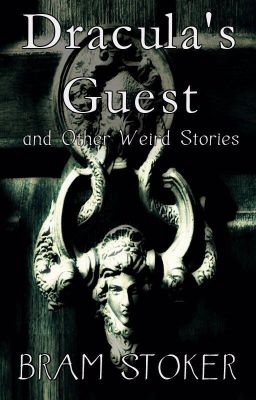snoop_spoon's Reading List
8 stories
MaryShelley
- Reads 289,233
- Votes 7,172
- Parts 28
"Frankenstein; or, The Modern Prometheus" is about an eccentric scientist Victor Frankenstein, who creates a grotesque creature in an unorthodox scientific experiment.
EdgarAllanPoe
- Reads 7,384
- Votes 499
- Parts 1
"The Bells" is a heavily onomatopoeic poem by Edgar Allan Poe which was not published until after his death in 1849. It is perhaps best known for the diacopic use of the word "bells." The poem has four parts to it; each part becomes darker and darker as the poem progresses from "the jingling and the tinkling" of the bells in part 1 to the "moaning and the groaning" of the bells in part 4.
Cover by: @CaffeinatedKiwi
EdgarAllanPoe
- Reads 6,417
- Votes 144
- Parts 1
"The Purloined Letter" is a short story by American author Edgar Allan Poe. It is the third of his three detective stories featuring the fictional C. Auguste Dupin, the other two being "The Murders in the Rue Morgue" and "The Mystery of Marie Rogêt". These stories are considered to be important early forerunners of the modern detective story. It first appeared in the literary annual The Gift for 1845 (1844) and was soon reprinted in numerous journals and newspapers.
Cover by the lovely @KatrinHollister
EdgarAllanPoe
- Reads 4,407
- Votes 133
- Parts 1
"Ligeia" is an early short story by American writer Edgar Allan Poe, first published in 1838. The story follows an unnamed narrator and his wife Ligeia, a beautiful and intelligent raven-haired woman. She falls ill, composes "The Conqueror Worm", and quotes lines attributed to Joseph Glanvill (which suggest that life is sustainable only through willpower) shortly before dying. After her death, the narrator marries the Lady Rowena. Rowena becomes ill and she dies as well.
The distraught narrator stays with her body overnight and watches as Rowena slowly comes back from the dead - though she has transformed into Ligeia. The story may be the narrator's opium-induced hallucination and there is debate whether the story was a satire.
Cover by the lovely @theynotgone
EdgarAllanPoe
- Reads 8,087
- Votes 215
- Parts 1
"The Pit and the Pendulum" is a short story written by Edgar Allan Poe and first published in 1842 in the literary annual The Gift: A Christmas and New Year's Present for 1843. The story is about the torments endured by a prisoner of the Spanish Inquisition, though Poe skews historical facts. The narrator of the story describes his experience of being tortured. The story is especially effective at inspiring fear in the reader because of its heavy focus on the senses, such as sound, emphasizing its reality, unlike many of Poe's stories which are aided by the supernatural. The traditional elements established in popular horror tales at the time are followed, but critical reception has been mixed.
Cover by the lovely @KatrinHollister
EmilyBronte
- Reads 1,993,707
- Votes 21,832
- Parts 34
Wuthering Heights is a wild, passionate story of the intense and almost demonic love between Catherine Earnshaw and Heathcliff, a foundling adopted by Catherine's father. After Mr Earnshaw's death, Heathcliff is bullied and humiliated by Catherine's brother Hindley and wrongly believing that his love for Catherine is not reciprocated, leaves Wuthering Heights, only to return years later as a wealthy and polished man. He proceeds to exact a terrible revenge for his former miseries. The action of the story is chaotic and unremittingly violent, but the accomplished handling of a complex structure, the evocative descriptions of the lonely moorland setting and the poetic grandeur of vision combine to make this unique novel a masterpiece of English literature.







